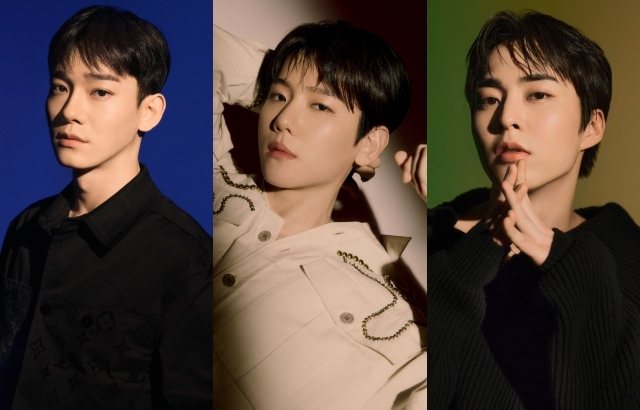(photo by INB100)
From groups like Girls Generation and Mamamoo to the recent news of EXO’s Baekhyun, Chen, and Xiumin leaving SM Entertainment; what was once only a laughable thought is now becoming a reality. 3rd gen kpop groups are signing contracts with their original company to keep the group together, leaving, and either making their company or signing with someone else for solo activities. Kpop is changing the way their artists are managed and it seems to be for the better.
Kpop has had a long history of scandals with their contracts since its birth in the 1990s. Companies used to be able to make a young trainee sign what is called ‘Slave contracts’ a term that refers to the unfair, long-term contract between Korean entertainers and their management agencies as defined on Wikipedia. There are two types of contracts within the category. One is the trainees contract and the other is the artist’s contract.
Trainee contracts are what people sign when they pass auditions and enter the company. They are for a set amount of years and can be renewed if the company sees fit or terminated if the company doesn’t think you have the potential to improve. These contracts have rules such as what the trainee’s schedule will be for lessons, what diet they have to be on, their image and a few other things. Companies can also sell a trainee contract to another company if they have the trainee’s permission. This happened with Chaewon of LE SSERAFIM. The group is under Hybe Entertainment but Chaewon was under Woollim Entertainment, her company sold her contract to Hybe with her permission and that led her to being able to debut in LE SSERAFIM.
Now, as we get into the actual artist contracts, we need a little context to how this happened. Back in the 90s when kpop was new and just starting to gain waves in its home nation of South Korea, there was a group called Shinhwa. The group debuted under SM Entertainment, which is a mega company, and got popular pretty quickly. Now, South Korea at this time was not open with certain things; they liked their artists to look a certain way and nothing else. Kim Dong Wan was a very popular member when the group first debuted. He had the look that the Korean public wanted to see. He had what they called a flower boy look. By the time the group’s third album promotions started, he had changed into a muscular and tanned man. This caused a flurry of negative reactions. People were scared of him; they didn’t like his new look because he looked like a beast compared to what they were used to seeing. It’s noted that children even cried when they saw him. In 2013, he revealed on KBS’ Happy Together that he changed because of his ex-girlfriend, “My girlfriend then didn’t like my skinny image. After I broke up with her, I suddenly decided to exercise and get bigger.”
At the time, Kpop artist contracts were only 5 years, a good and normal amount of time. During that time, SM decided to work Shinhwa to the bone to get as much out of them as they could. They were scared to lose the group like they had earlier with their other huge boy group H.O.T. When Shinhwa’s contract came up, only certain members got an offer to resign, mainly their leader Eric. They did not renew their contract. The group stayed together and went to a different company. They spent 12 years trying to get their group name back and finally won.
Now, when SM was getting ready to debut a new group called DBSK, they looked at what has been going on and figured out how they can keep their investments longer: make their groups and soloists sign 13 year contracts that are impossible to get out of.
These contracts controlled what was covered in the trainee contract plus social media, their love lives, and behavior. These companies controlled everything about these kids who wanted to make their dreams come true. In 2009, three of the five members of DBSK took SM to court about their 13 year contract. They claimed it was too long, too restrictive and gave them too little earnings for their music. In 2010, South Korea’s Fair Trade Commission (KFTC), created a rule that limited entertainment contracts to seven years.
2014-2015, once again SM is in the news for a lawsuit involving its treatment and contracts for its artists, this time involving its biggest group at the time, EXO. Chinese members Kris, Luhan and Tao all sued between May of 2014 to April 2015. Kris, Luhan, and Tao cited their lawsuits that their exclusive contracts with the company were invalid due to the length of the contract, treatment from the company, unfair profit distribution and other reasons.
Seven years later, the KFTC again put restrictions on entertainment contracts following the lawsuit involving traditional folk singer Song Sohee. The 2017 reforms reduced the financial penalties for entertainers that break their contracts early and made it more difficult for companies to force entertainers to renew their contracts.
In 2017, Girls Generation members Tiffany, Seohyun, and Sooyoung did not renew their solo contracts with SM. In the article, SM made the comment “The members are not thinking of disbandment at all. However, since there are members whose contracts have been terminated, we will discuss the future direction of Girls’ Generation with the members and make a careful decision.”
This was a shock to kpop fans because this has never happened before. If members of a group leave while others stay in the company, then the group continues on without them. This was something that changed up the way that groups have done their contracts in the past few years.
Another group that did this is Mamamoo. Member Wheein did not renew her contract with RWB in 2021 but signed an extended contract with them to continue to do group promotions with Mamamoo while members Solar and Moonbyul renewed and Hwasa signed with P Nation. The girls had a comeback in 2022, but this was the first group who had this new arrangement to make a comeback.
The biggest lawsuit to come out last year about contracts was between EXO members Xiumin, Baekhyun, and Chen against their former agency SM Entertainment. The three members sued for a lack of payment transparency and unreasonably long contract requirements. The initial statement from the law firm hired by the stars called the contract a slave contract. According to Billboard, “SM responded in statements to Korean media that refuted any contract issues and claimed new agencies were luring the stars into signing secondary contracts. SM later apologized for the secondary contract claim, sharing that it came from incorrect information via a joint statement with the EXO members.”
Now according to Xiumin, Baekhyun, and Chen’s (who I will be referring to as CBX) lawyer, SM has not changed their ways with contracts, even with laws being in place. “The artists have signed exclusive contracts that are over 12 or 13 years with SM. This is far beyond the seven years determined by the Fair Trade Commission for the Standard Exclusive Contract Form for Entertainers, and it is unilaterally disadvantageous to the artists as it exceeds a reasonable limit at the very least.”
This is the fourth time that SM has been sued because of their contracts and financial dealings. They know the law but they still choose to ignore it! CBX’s lawyer gave two reasons for this lawsuit:
1. Statement on Settlement Reports and Contract Duration: CBX signed long-term contracts with SM for over 12-13 years, but SM refused to provide settlement reports despite requests. SM is obligated to provide settlement reports and settlement basis, but they did not, thus it breaches CBX’s contracts. CBX plans legal action against SM for accurate settlement details and suspect unjust contract extensions.
2. Concerns about Unjust Contracts and Contract Extensions: CBX criticizes excessively long contracts exceeding 12-13 years which violate fair trade guidelines. SM seems to have a practice of extending contracts up to 17-18 years and is deemed unjust and coercive. This is also something that is a similar case to the majority of SM artists, not just CBX.
The group then filed a complaint to the Fair Trade Commission against SM on June 4, 2023. Their legal team claimed it’s for “abuse of superior bargaining position.”
SM then responded with their own claims of how things went with CBX:
1. Confidentiality of Settlement Reports: Settlement reports contain confidential information about artists’ activities, rates, and methods and are not available for third parties. Providing such reports involves trust, especially in groups, to prevent exposure of other members’ information. The agency has historically allowed artists to review settlement details and addressed their questions and concerns.
2. Concerns and Requests from Artists’ Legal Representative: The agency is concerned about third-party involvement raised by the artists’ legal representative. Despite requests for clarification on confidentiality agreements, the representative has remained silent. The agency emphasizes the need for trust and transparency in their interactions with the artists’ representatives.
The company and CBX’s legal representatives continued to go back and forth for a few weeks making the situation get more and more intense. Things did go quiet for a little while until June 18 when it was announced that CBX and SM had reached an agreement.
Both parties took time to talk and make arrangements for CBX to continue promoting with EXO and have a good relationship with SM. Things seemed to calm down until Aug. 9, 2023, when SM denied that they knew about Baekhyun starting his own company, which he announced during a live stream.
On Jan. 4, CBX launched their individual activities through an independent company started by Baekhyun named INB100.
This has become a trend as on Feb. 20, Kpop group BTOB announced their own company as well. Kpop artists becoming their own companies and taking their own lives back into their own hands from companies who have been controlling them for years is something so many fans have been extremely happy about.
Groups are able to continue their legacies while still being able to live and be their own person again. Something a lot of them had to give up when they were very young to achieve their dreams.
Kpop is moving into a good direction and hopefully companies will continue to understand that their artists are people, not machines.





